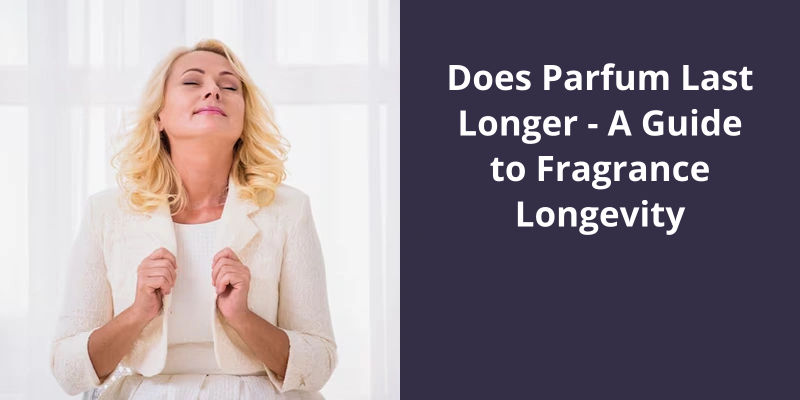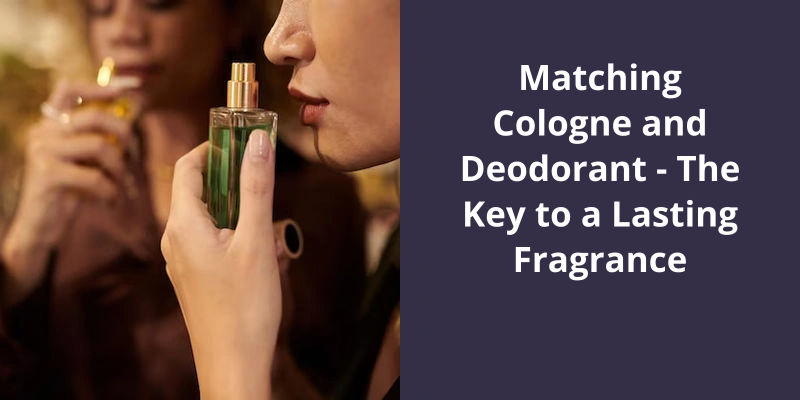There could be several reasons why you can’t smell your Chanel perfume. One explanation could be due to a phenomenon known as olfactory fatigue or nose blindness, which occurs when your nose becomes accustomed to a scent after prolonged exposure. You might not be able to detect the perfume, but others around you can. Also, Chanel uses high-quality ingredients that blend seamlessly with your body chemistry and might seem to disappear, but they actually meld with your skin. Another reason could be that your sense of smell could have been temporarily impaired due to factors like a common cold or other illnesses. Lastly, there’s always a possibility of a counterfeit or expired product, which may not have the same scent or strength as the original.

Why Does My New Perfume Not Smell?
However, there are also other factors that could cause your new perfume not to smell. One possible reason could be that the perfume has expired or has been stored improperly. Most perfumes have a shelf life of around 3-5 years, and if they aren’t stored in a cool, dry place away from direct sunlight, they can lose their scent and potency. So, if you’ve just purchased a new perfume and it’s been sitting on the shelf for a long time, it may not smell as strong as expected.
Each person has a unique body chemistry that reacts differently to scents, so what smells great on one person may not smell the same on another. This is why it’s important to test perfume on your skin before purchasing it, as this will give you a better idea of how it will smell on you.
It’s also important to consider the concentration of the perfume you’ve purchased. Perfumes come in different concentrations, with eau de parfum being the strongest and eau de cologne being the weakest. If you’ve purchased a weaker concentration, you may need to apply more of the perfume to get the desired scent.
Lastly, it’s worth noting that sometimes our sense of smell can become desensitized to a certain scent if we’re exposed to it repeatedly. This is known as olfactory fatigue, and it can happen with perfumes as well. If you’ve been wearing the same perfume for a long time, you may not be able to detect it’s scent as strongly as before.
It’s important to consider factors such as the perfumes age, your skin chemistry, the concentration of the perfume, and whether your sense of smell has become desensitized. In most cases, however, it’s simply a matter of allowing your brain to adjust to the new scent, so don’t give up on your new perfume just yet!
The Science Behind Why Certain Scents Appeal to Certain People and Repel Others
Our sense of smell is connected to our emotions and memory. When we perceive a scent, it interacts with our brain’s limbic system which is responsible for emotion and memory. Therefore, our preferences for certain scents and aversions to others can be linked to personal experiences and associations. Additionally, genetics may play a role in our sense of smell, leading to individual variations in scent preferences.
So if you’ve ever wondered why that expensive perfume you bought doesn’t seem to have the same strong scent on you as it does on someone else, don’t worry – there are a multitude of factors at play. In this article, we’ll dive deeper into the science behind why perfume smells differently on different people and offer tips on how to make a fragrance last longer on your skin.
Why Does Perfume Not Smell Strong on Me?
One reason why perfume might not smell strong on you is due to the natural oils on your skin. Your bodys natural oils can mix with the fragrance, creating a unique scent that might not be as strong as the intended fragrance. In addition, some people have drier skin than others, which can also affect the way perfume smells on them. If you’ve dry skin, try moisturizing before applying perfume to help the scent last longer.
Another factor that can affect the strength of perfume is the amount that you apply. Too much perfume can be overwhelming, whereas too little may not be noticeable. Finding the right amount of perfume to apply can be tricky, but a good rule of thumb is to start with a small amount and gradually increase until you achieve your desired scent level.
Your diet can also play a role in how perfume smells on you. Similarly, medications can have a similar effect on your body chemistry, which can impact the scent of perfume.
Interestingly, stress can also affect the way perfume smells on your skin. As a result, a scent that smells good on you one day might not smell as strong if youre feeling stressed or anxious.
Lastly, age can also affect how perfume smells on you. For example, younger people tend to have oilier skin, which can help fragrances last longer.
From natural oils to stress and age, understanding the unique chemistry of your skin can help you find the right fragrances to suit your personal scent preferences. And remember, sometimes less is more when it comes to perfume, so don’t be afraid to experiment with different amounts and application techniques to find your perfect scent.
Conclusion
This ultimately leads to a desensitization towards the perfume that we’re wearing, and an inability to recognize it’s scent. While this may be frustrating for perfume enthusiasts, it’s important to remember the complexity of the human body and it’s natural processes. Our olfactory senses play a crucial role in our daily lives, from detecting danger to enjoying the simple pleasure of a delicious meal. So, even if we can no longer smell our favorite perfume, we can appreciate the intricate mechanisms of our own bodies that contribute to our sense of smell and the ways in which we experience the world around us.





